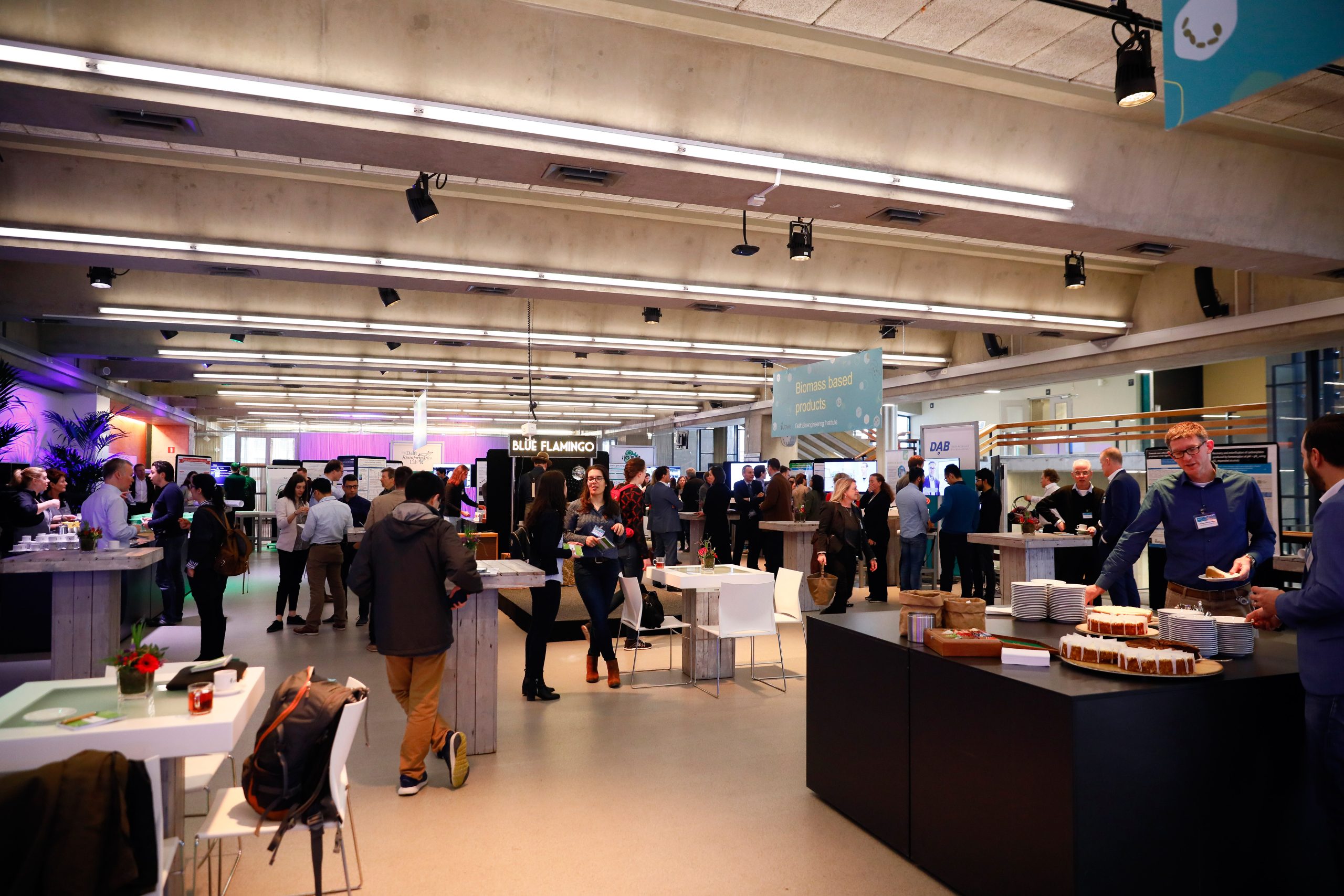For the past fifteen years, TU Delft has been laying the foundation for the use of organisms in technical environments. The new Delft Bioengineering Institute unites more than 100 scientists spread over fourteen departments and four faculties who are working at the interface of biology and engineering.
The kick-off meeting, held on March 27th, was attended by about 250 people and was hosted by Isabel Arends, director of the Delft Bioengineering Institute. Over the past two years she has worked on an inventory of all ongoing bioengineering research at the TU Delft campus. She met with many researchers that are just as fascinated as she is herself by the potential of biological building blocks. Her meetings resulted in a strategy for the institute which aims to initiate projects within three themes: biomass-based products, environmental bioengineering and bioengineering for health.
The core activity at the kick-off meeting was an invitation-only ‘bio speed date’ in which about forty scientists from various faculties and departments formulated project proposals for multidisciplinary master’s projects. The Institute will award the ten best proposals with a money prize.
The afternoon showcased highlights from the new institute’s three themes in quite some detail.
Luxury problem
Andrea Ramirez (Technology, Policy and Management) and John Posada (Applied Sciences) addressed the luxury problem of the over-abundance of potential bio-based products. They presented the methodologies that they developed that take into account the economic, environmental and social impact aspects, to help determine the viability of new bio-based products.
Merle de Kreuk (Civil Engineering and Geosciences) and David Weissbrodt (Applied Sciences) presented the new MSc track on environmental engineering which started in 2016 and which currently has thirty-five enrolled students. They also presented a system – inspired by a cow – to control the waste-reaction in a fermenter, steering it away from biogas production and towards the production of building blocks for the chemical industry.
Blood 2.0
Marieke van Lindern (Sanquin blood bank) and Maria Cuellar (Applied Sciences) presented ‘Blood 2.0’ for transfusions, whose goals are to avoid blood borne disease and to become donor independent. The project aims to create biotech blood, combining Sanquin’s expertise in blood cells with TU Delft’s knowledge of fermentation technology and scaling up. Artificial blood is still a thousand times more expensive than donor blood, but the first results are promising.
A DNA sequencer the size of a USB stick is an excellent example of biotechnology
The clearest presentation, and the day’s best example of biotechnology, came from keynote speaker Clive Brown, CTO of Oxford Nanopore Technologies. The company’s goal “to enable the analysis of any living thing, by any person, in any environment” has resulted in a DNA sequencer the size of a USB stick. It is an excellent example of biotechnology being at the cutting edge of biology, chemistry and engineering.
Thorny devil
The device copies the skin of an Australian reptile nicknamed ‘the thorny devil’ that pulls water out of moist sand and transports it, against gravity, to the mouth. The DNA sequencer pulls single strands of DNA through nanopores. A protein had to be attached to the DNA to slow down its speed of travel.
Further technical challenges were to measure the current of the negatively charged DNA passing through the pores, which is in the order of pico-amperes, and to decode the noisy signal into strings of base-pairs (nucleotides). The latter wouldn’t have been possible without developments in machine-learning and big data. The device could, for example, be used to monitor the abundance of tumour cells in the blood of a patient on the operating table, providing near real-time feedback as the surgeon cuts out the tumour.
Martijn Engelsman



Comments are closed.